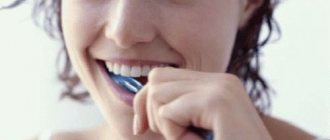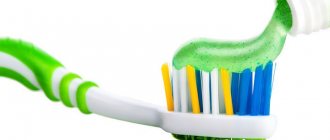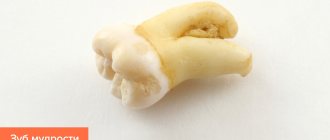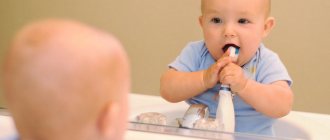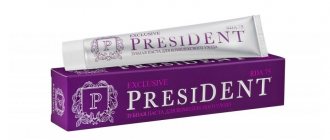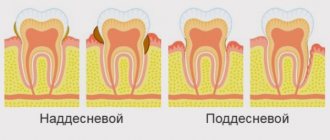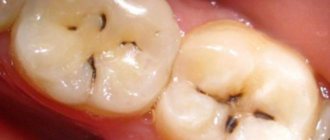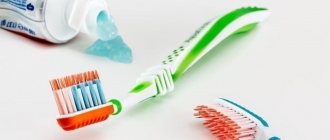No matter how hard parents try to monitor the health of their children’s teeth, the first problems can arise in children even at a very early age. Most often, the main reason for this is genetic predisposition, and if mom or dad are frequent “guests” in the dentist’s office, then most likely the baby will face the same fate. That is why parents should carefully monitor the child’s oral cavity and know when and how to treat children’s teeth.
At what age can a child’s teeth be treated?
No matter how hard dentists try to “educate” parents, some mothers stubbornly believe that there is no need to treat baby teeth, since they will fall out anyway. However, experts never tire of repeating that a tooth that has begun to deteriorate is:
- source of infection in the mouth,
- the possibility of an unpleasant odor,
- aesthetically unattractive.
And if you can come to terms with the last two points, then the first can lead to many dangerous consequences in the form of a decrease in the baby’s immunity, the occurrence of acute respiratory diseases, pharyngitis, laryngitis, as well as diseases of the stomach and intestines.
In addition, a destroyed baby tooth can “transmit” the infection to the permanent tooth germ, as a result of which it may grow damaged or not grow at all.
One of the serious complications of untreated caries is pulpitis of the baby tooth - it will inflame
a serious disease of internal tissues, the symptom of which is acute pain. Pulpitis has several forms and stages, the most complex of which can lead to tooth extraction.
IMPORTANT: The “loss” of baby teeth before their natural replacement date can cause a child to have problems chewing food, as well as lead to the development of malocclusion.
This is why it is so important to stop the decay of baby teeth in time and preserve the child’s overall health. And treatment should begin from the moment the first alarming symptoms are detected , regardless of the baby’s age.
Why are pediatric dentists needed?
Already at the teething stage, the pediatrician can refer the child to an appointment with a pediatric dentist. This specialist will tell you how to facilitate the process of tooth growth, teach you the rules of oral hygiene, as well as the prevention of caries.
A pediatric dentist can answer many questions: about pacifiers, sweets, teeth cleaning, etc.
At an older age, if the child already has problems, the doctor will be able to select a technique suitable for the little patient, with the help of which the process of tooth decay will be slowed down or stopped completely.
In order to conduct medical examinations, you need to bring your baby to see a pediatric dentist three to four times a year. Thanks to frequent examinations, caries can be detected at a very early stage and will not lead to negative consequences.
Which toothpaste should I use to brush my teeth?
The main purpose of toothpastes is to enhance the cleaning effect of the mechanical action of a toothbrush on the teeth. Therefore, they are based on foaming agents and abrasives. However, toothpastes not only help cleanse the surface of the teeth, but also have a preventive and therapeutic effect, for which active substances are added to them. Many people wonder which toothpaste is best for brushing their teeth. The answer is simple - the one that suits you best.
When choosing a paste, you need to focus on the problems that bother you. For example, people with sensitive teeth may benefit from non-abrasive toothpastes containing potassium chloride or strontium chloride. For those who have gum problems, toothpastes with anti-inflammatory and antibacterial effects are recommended. For the general prevention of caries and periodontal diseases, each of us should brush our teeth with toothpastes containing fluoride. But you shouldn't use them all the time. Pastes with fluoride should be alternated with pastes without it, which will also be useful for people with fluorosis (dental disease caused by an excess of fluoride in drinking water).
Important point! For complete teeth cleaning, just a 5 mm strip of toothpaste is enough.
Where to treat a child's teeth
Probably every third adult can remember with some horror their first visit to the dentist, which became the reason for a lifetime of fear of the dental office.
“Standard” conditions in public clinics and the lack of psychological training for doctors to communicate with children have led to the fact that our generation makes an appointment only when it is already completely “unbearable.”
Today, there are specialized children's dental offices and even entire clinics, a trip to which will not cause any negative emotions. Modern equipment and treatment methods reduce all painful sensations, and qualified specialists will be able to find an approach even to the smallest children.
Fortunately, today there is an opportunity to choose where to treat children's teeth. Such services are provided both by city clinics and by private offices. When choosing a clinic, you should study in detail reviews about doctors and treatment conditions .
First, you can visit there without the baby and “scout the situation.” Everything is important: the qualifications of the doctors, the attitude towards the children, and the general atmosphere. If at the level of intuition it seems that something is “wrong”, it is better to continue the search. After all, it is very important that a visit to a dentist is as traumatic as possible for the child’s psyche.
How children's teeth are treated
The main difference between caries of primary and permanent teeth is that in the first case it progresses much more rapidly due to the thinner enamel of the primary tooth. And if you “miss” the moment, then treatment may no longer be appropriate, and the tooth will have to be removed. This is why preventive screenings are so important.
But if the problem has already arisen and there is nowhere to put off a visit to the dentist, it is important that the treatment process proceeds in stages:
Meet the doctor
Your first visit to the dentist should not cause any pain. Let the child walk around the office, ask disturbing questions, sit in a chair (in his mother’s arms or on his own). The doctor will look at the teeth, knock on them, talk to the baby and schedule the next appointment. It is important that the first visit leaves only positive impressions on the child.
Preparation
At this stage, the doctor explains to the child (in his language) what happened to the tooth and how to help him. It is important to voice the actions that will be carried out so that no movement comes as a surprise to the baby or frightens him.
Treatment
This stage is the most responsible and difficult. Today, during manipulations, it is often practiced for children to watch. This is a great way that really works, helping the child to distract himself , relax and let the doctor do everything necessary. Everything happens easily and simply: the baby lies comfortably in a chair, watching a fascinating story on a screen attached to the ceiling.
If the area of tooth damage is small, technologies that are suitable even for two-year-old children can be used:
- grinding the surface followed by application of a remineralizing agent,
- impregnation of a carious stain with a special preparation that hermetically “closes” it and stops the destruction process.
If the area affected by caries is large enough and the use of a drill is necessary, the child may be offered anesthesia. He can be:
- local, which is done in two stages: first the injection site is anesthetized, and then a syringe with anesthesia is injected directly,
- general, the need for which arises if long-term treatment is needed in one visit (more than six teeth), if the child is too active, emotional, aggressive.
IMPORTANT: When treating a child under general anesthesia in the office, in addition to the dentist and his assistant, the presence of an anesthesiologist and a nurse anesthetist is required.
If it was not possible to save a baby tooth, and the time for changing teeth is still far away (this often happens in children 4-5 years of age), the doctor places a special “space holder” in place of the extracted tooth, thanks to which the dentition does not bend and diction is not impaired,
Promotion
It is important that after the procedure the child feels like a real hero, and any unpleasant sensations are quickly forgotten. Some clinics provide small souvenirs and certificates for children at the end of the appointment. If there is no such service, you should take care of positive emotions for the child yourself by purchasing a gift in advance and discreetly giving it to the doctor.
Such a move will not only “erase” all unpleasant impressions, but will also help you repeat the visit to the doctor if necessary without unnecessary problems and persuasion.
As you can see, the process of treating children's teeth is much more extensive than working with an adult patient, which often consists only of direct treatment (and very rarely preparation). In addition, the dentist needs to carry out all the necessary manipulations in the shortest possible time (while the baby is sitting quietly) without causing pain to the little patient.
About the loss of baby teeth
- Three cats, three tails.
The series is called “Milk tooth”. In this episode, Caramel's tooth begins to loosen, and the cat is afraid that she will be left without teeth. And my mother explains that this is normal, the tooth is temporary and a new tooth will grow in its place. And if the tooth does not fall out on its own (sometimes this happens), then the pediatric dentist will help, and then the tooth fairy will bring a gift for it! And what gift Caramel received from the tooth fairy you will find out by watching the episode to the end! - Peppa Pig.
The episode is called “The Tooth Fairy” - Luntik.
The series is called “Tooth” - the plot is similar.
December 4, 2021
What to do if a child does not allow his teeth to be treated
Often, a child’s behavior during an appointment with the dentist directly depends on his age. And if for a 3-year-old child, excitement, crying, and the desire to break out are a normal reaction, then a seven-year-old child can already fully control his emotions.
And if such manifestations are present in his behavior, one should immediately look for their cause. It is necessary to analyze what exactly prompts the child to such a reaction: is he afraid of the procedure itself, a specific doctor or doctors in general, or maybe this is just a way to manipulate parents in order to get what they want?
After the cause of the fear has been established, you should talk to the child about what is bothering him. And then, discuss the current situation with a dentist, and sometimes (if fear has turned into a phobia) with a psychologist.
ATTENTION: If a child asks his mother to stay with him in the doctor's office, it is important to meet the child. But if in her presence he begins to behave uncontrollably and does not allow the doctor to complete the procedure, it is better for the mother to leave the office, leaving the situation to be resolved by a specialist.
How to persuade a child to have their teeth treated: advice from a psychologist
Before telling the child about the upcoming visit to the dentist, parents (especially the mother) must overcome their own anxiety and under no circumstances show it to the child.
And in order to minimize any negative aspects when visiting a doctor, psychologists recommend following some rules:
- from a very early age, children should be explained that their teeth need to be protected, looked after and checked by a doctor, whose first visit is best scheduled at the age of one year,
- You can play “dentist” with your child, treating the teeth of dolls and teddy bears. It is important that the child perceives this process as a useful and important event, without endowing it with any negative properties,
- before visiting a doctor, you can watch various cartoons or interesting videos about how children’s teeth are treated,
- It’s better to plan a trip to the doctor in the morning so that the child doesn’t have time to screw himself up during the day,
- You shouldn’t “promise” your child that it won’t “hurt” if in fact he is waiting for an injection or other painful procedure. Not only will he, confident in the harmlessness of the procedure, be frightened when he experiences sharp pain, but this stress can cause a categorical rejection of the dentist in the future,
- When explaining to the child what will happen, you should also not “go deeper” - let the doctor do this in a language adapted for the baby. Parents should limit themselves to general phrases in a calm tone,
- It is very important to protect your child from “horror” stories of visiting the dentist. It is important to ensure that topics of this kind are not discussed at all in the presence of the baby. In addition, it is categorically unacceptable to speak badly about doctors in front of a child. The kid must learn that a doctor is a person who does good, helping people not get sick and be healthy,
- there is no need to scold, shame or humiliate the baby, compare him with other “brave” children if he panicked and did not “give himself” to have his tooth treated. The best thing in this situation is a calm and frank conversation with an expression of hope for a positive outcome of the next visit,
- It is important to find “your” dentist who could win the child’s trust, find an approach to him and set him up for a positive attitude.
Dental cartoons and videos for children
We all know very well that convincing a child to do something right and useful is sometimes very difficult. Visiting a dentist, proper oral hygiene, proper nutrition - all this is no exception, and convincing a child to brush his teeth and do it well can be even more difficult. And a visit to the dentist turns into torture for parents. But before you blame your child for this, think about whether you conveyed all the information to him correctly and whether he understands what awaits him if he brushes his teeth poorly and abuses candy. Dental specialists "Orthodont-LUX" in Kaliningrad have selected educational and educational cartoons for you and your children about dentistry, how to brush your teeth correctly, what is harmful and what is good for your teeth, what caries is and why caries occurs. Educational and colorful cartoons about dentistry and teeth, with memorable characters, will help you explain to your child why soda is harmful to teeth, what plaque is and how it is formed, why it is important to go to the dentist, and that the dentist is not scary at all and helps preserve teeth healthy and clean.
The first educational and educational dental video for children is called “The Legend of the Dental Kingdom”, this is a wonderful educational fairy tale that in an easy and relaxed way introduces children, as well as their parents, to the basic rules of dental care, bad habits, unhealthy foods for teeth, and why you need to brush your teeth every day. Here, in just fifteen minutes, they will learn what caries and plaque are, and how to deal with them in everyday life!
The second educational cartoon about teeth is called “Tooth Defenders” and talks about how to protect your teeth from the notorious caries, how long you need to brush your teeth, no matter how caries can settle on your teeth, why sugar from sweets is so harmful, why everyone has their own toothbrush and why it is so important to visit a dentist regularly.
The next educational cartoon about teeth is called “A round-the-world journey for dazzling smiles,” like the previous ones, it will tell your child how to properly care for their teeth in order to always have a healthy and dazzling smile. The child will understand why chips and candy are bad food for teeth, what you need to know about toothpaste and toothbrush, and why baby teeth fall out, but they still need to be protected.
The latest cartoon about teeth, or rather about new teeth, will be especially interesting for children, because “Smeshariki” evokes positive emotions in most children. Well-known heroes will talk about baby teeth, and that baby teeth fall out so that a new molar can grow in its place.
Specialists of the dental clinic “Orthodont-LUX” in Kaliningrad hope that these cartoons about teeth for children will help parents explain many important points related to dental health, as well as dispel all prerequisites for going to the dentist, and awaken the child’s interest to a healthy lifestyle.
You can get all the necessary information about Orthodont-LUX dentistry, as well as make an appointment with a dentist at a time convenient for you, by calling the numbers listed on the website, or by visiting our dentistry in Kaliningrad, at the address indicated in the section contacts, check with our specialists for more detailed information.
